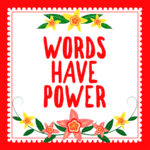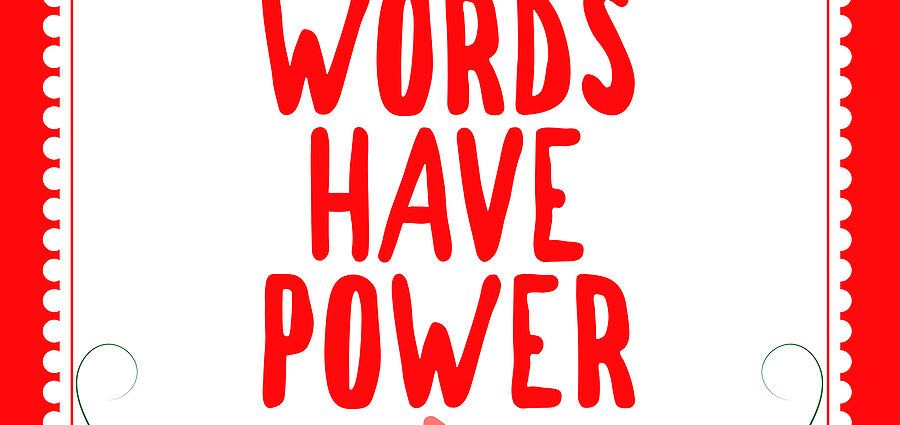 Many years ago, while out walking with a friend and her four year old daughter, we stopped at the park for a few minutes of play time. Another child around the same age came up to us, pushed my friend’s child and tried to grab the toy she was holding, saying loudly, “Mine!” My friend had been working hard to teach her bright and headstrong child to interact appropriately with others. She bent down and whispered to her child that great parenting advice, “Use your words.” My little companion immediately stood up straight, hands on hips, and clearly said, “Leave me alone. That’s not nice!” The boy quickly pulled back, became quiet, and backed slowly away.
Many years ago, while out walking with a friend and her four year old daughter, we stopped at the park for a few minutes of play time. Another child around the same age came up to us, pushed my friend’s child and tried to grab the toy she was holding, saying loudly, “Mine!” My friend had been working hard to teach her bright and headstrong child to interact appropriately with others. She bent down and whispered to her child that great parenting advice, “Use your words.” My little companion immediately stood up straight, hands on hips, and clearly said, “Leave me alone. That’s not nice!” The boy quickly pulled back, became quiet, and backed slowly away.
I’ve thought about this incident often over the years and I’ve often wondered what became of that little boy who didn’t know how to use his words to get this little girl to play with him. My hope for him is that someone eventually taught him how to make friends, how to communicate more effectively, so that he doesn’t still need to grab others’ toys in order for him to have fun. I do know that my sometimes temperamental, strong-willed young friend has become a bright, self-confident young woman who uses her words quite effectively.
This incident came to mind again recently as a result of my active involvement in several organizations. I’ve watched potentially great ideas fall by the wayside and have seen some bright, talented people whose contributions are brushed aside – all because they just didn’t use those words effectively.
Of course, this is an immense simplification of a rather complicated issue. There are many reasons people have difficulty communicating effectively. Some people just haven’t learned some important social skills or may not know how to read essential social cues. And others find that deeply felt emotions seem to rule – even when they really know what they could be doing to be more effective. Look for more information about communication roadblocks in future posts.
MY TOP FIVE TIPS FOR EFFECTIVE COMMUNICATION THAT YOU CAN USE RIGHT NOW:
1) Take a few minutes to think before responding. Few communication opportunities or disagreements require immediate responses.
2) Listen more than you talk. Many arguments happen when two people talk and neither really hears the other.
3) Ask clarifying questions before you respond. Repeat back what you think the speaker wants you to know, and check to see that you’ve got it right. This gives you a chance to think, while the other person feels you really do want to understand.
4) Acknowledge the other person’s position (even if you disagree). This results in calmer discussion.
5) Offer to collaborate on a solution to diffuse conflict.If it’s a little hard for you to keep a calm voice in the face of a challenging conversation, it might help to take a brief break (bathroom, telephone, etc.) to do some deep breathing and get a little more grounded.
Remember that not all conflicts are solved easily. But, you have the power to keep those small disagreements or conversational challenges from growing into huge battles.
And – here are some “magic” words to use that can get your conversations back on track (but avoid that angry tone of voice, if you want these words to be heard!):
1) I don’t quite understand what you mean by that. Could you go over that again?
3) What an interesting idea! How would you make that happen? (Even if you don’t agree – just ask!)
4) I’m really uncomfortable with what you just said. When I heard ……… I felt ………….
5) We seem to disagree on this. Is there any part of this subject we can both agree on?
6) I guess we both feel strongly about this. It helps if I know how you feel, even if we can’t agree.
What’s worked for you? Have you developed any sure-fire strategies for managing those difficult conversations, so that anger doesn’t rule? Are you facing some challenges at work or at home that you’d like me to consider for a future post? I’ll do my best to respond to your emailed questions and comments as soon as possible.
To read more about communication challenges, take a look at this post: BODY LANGUAGE: MORE POWERFUL THAN SOME WORDS!.
